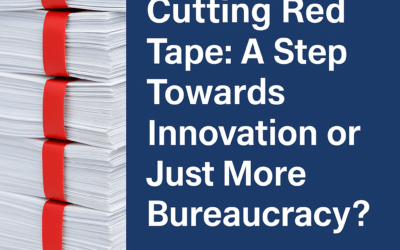Why is Social Care so far ahead of the NHS when it comes to digital records and mobile working?
This is a question I was asked recently at meeting about implementing digital health technologies in the NHS. The question arose as a result of me being the only person in the room with Social Care experience (as often occurs in this “integrated health and care” community) and saying that most of the “new technology” NHS staff were wanting to introduce had been in active use in social care for up to ten years e.g. shared digital records (with patients as well as carers), lone worker GPS alarms, allocating correctly qualified staff to community appointments, automated rostering.
Here is my answer to the question “Why is Social Care so far ahead of the NHS when it comes to digital records and mobile working? Is it because the NHS won’t spend the money?”
Firstly, Social Care is considerably more strapped for cash than healthcare in the UK. The growing elderly population, with multiple co-morbidities doesn’t result in an increased number of episodes of care for social care, as it does for healthcare. Elderly citizens with multiple co-morbidities often need care for life, once care is allocated. An elderly patient who goes into hospital in a planned or unplanned manner, loses confidence and frequently returns home in need of social care support for a minimum of 6 weeks, but often for life. Those already in receipt of care at admission often need additional care on their return home. Then of course, there are those that can’t return home and are sent to residential accommodation until they die. Council budgets have been slashed, and over the years and councils have found it impossible to fund their own workforces to deliver care, partly due to on-cost employment terms (pensions, holidays and sick leave entitlements) being more generous than private sector employment.
Council contracts for Home Care, Residential Care and Supported Accommodation are open to any qualified provider. This means that social care support is provided by private companies, being asked to provide safe, regulatory compliant services for more people with less money, and often having to guarantee payment of the Living Wage after travel and costs. The only way to deliver this was to find efficiencies, and the only way to do this was to utilise digital technologies to enable smart, mobile working. The companies purchased innovative technologies enabling digital care records, which could also be shared with service-users and any people they agreed to share their data with, e.g. family. This made the companies more efficient, with care staff being deployed more effectively and spending less time on paper record-keeping and more time with clients – whilst being able to demonstrate care delivered to commissioners and families. Not all providers use all of the available technology, but as independent companies they have the flexibility to purchase what meets there needs and indicates/demonstrates efficiencies and client and staff benefits.
NHS commissioning is a different matter. In order to “simplify” processes a large amount of NHS commissioning is centralised through large Framework agreements (e.g. GP SOC). GP IT Futures is due to replace GP SOC, so you would think that this would be an opportunity for the NHS to access a new range of innovative suppliers, who may already have experience of shared-care records outside of the NHS. GP IT Futures is a monument to the complexity of procurement processes that commissioners can achieve if they gather as many staff together as possible to work on a single project. I looked into the potential for this framework for clients, and to register to engage in the process took a few days in creating log-ins and finding your way around the largest, most complex set of documents I have ever had the misfortune to try and read. There is too much information for a single person, working full-time to read – never mind the frequent email updates of new content. I advised my clients that the cost of housing the additional staff required to read review, discuss and eventually respond to this framework would cost most than an SME could generate within 5 years – let alone the cost of the staff themselves!
Yet again the NHS are doing what they’ve always done, and they will get what they’ve always got. Only large multi-national companies will have the resources to invest in such a time-consuming and complex process – the very companies which are already supplying GP technology.
It was suggested to me that SMEs could partner with larger companies on the framework.
Funny, really funny……..so a large commercial supplier which has invested lots of time and money into gaining the commercial advantage of a place on a national framework, is going to help SMEs get a foot in the door and build their capacity to compete with them??? I think not.
As a final note I will finish with something that was said to me by a senior representative of one such large IT provider:
“We love working with the NHS. They pay us to provide what they think they want, and then it doesn’t work, so we can then charge millions to make it work, and they always have to pay, because they have committed to the project”.
Small companies innovate, collaborate, partner and problem-solve with the NHS, and in my experience have a true understanding of value to staff and patients.




